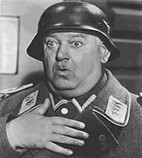Why, in many instances of social unrest, do we look the other way; that we do nothing? But before we offer some possible answers, last week’s rampage in Washington gives us some context, a starting point.
Like millions, I watched in disbelief thousands of “protesters” (or whatever you choose to call them) converge on the Capital building. The images of them scaling walls, overwhelming police and breaking windows while lawmakers cowered in hiding or were rushed out for their safety will be etched into my memory forever.
Although I knew the answer – we all do if we’re honest with ourselves – I asked myself what the response would have been had those protesters been people of color, African Americans in particular, who peacefully protested there just a few months before?
Now in the days that followed, I scrutinized the faces of the protesters from newspapers and television screens looking for clues about their backgrounds and a hint about what other than politics may have motivated them to board cars, trucks and planes to get there.
I wondered about those who made little or no effort to mask – COVID-19 aside – their identities, to me an indication that some may have had no intention of participating in a riot yet found themselves sucked into the chaos, nevertheless. I thought about “groupthink” and about those picture-snapping bystanders in the crowd which made me think about Sergeant Schultz.
 Yes, Sergeant Shultz.
Yes, Sergeant Shultz.
Now have you ever watched the old side-splitting TV program, Hogan’s Heroes? If so, you remember the affable Sergeant Schultz, the ultimate by-stander, and his famous line, “I know nothing…nnnoooTTTTHHHING” when witnessing chicanery by Hogan and other American captives.
But let’s step back to the question I opened this narrative with: why do we look the other way?
First some background.
Years ago, I read about the “bystander effect,” a social phenomenon in which a person is less likely to intervene when there are people around who can also help. Feeling it too risky, bystanders become tacit collaborators.
Then there’s the Abilene Paradox, a group dynamic that is perhaps the most relevant in understanding why many people do nothing. Abilene, the Texas city, is the namesake for the paradox. “Groupthink” is one possible explanation and the essential message of the paradox.
On a hot summer day, a family piled into a car without air conditioning and drove many miles to Abilene to try a new diner. The heat was oppressive, the food was lousy, but no one dared to speak in those terms until later back home. Finally, the matriarch of the family broke the silence by complaining about the food. Then the others chimed in with their complaints – the car was hot; it was stupid to go the restaurant in the first place – but no one said so when it mattered. Thus, groupthink stops bystanders from intervening because group members feel so tightly connected. They are easily led by a forceful leader and cover themselves by falling in line to avoid making waves.
With groupthink, the bystander will even buddy up to and participate in the act with the bad person, a behavior born out of fear to protect himself from the bad person’s wrath (or “tweet”). This reminds me to recall, shamelessly, a race riot I accidently stumbled into many years ago in Boston when, observing rioters toss stones and bottles into liquor store windows, I was on the cusp of joining them before dropping my bottle and slipping down a side alley when the rioters looked the other way. Fortunately, I escaped images that flashed on the evening news; ones that could have been costly for me both personally and professionally.
Then there’s “cognitive dissonance,” another dynamic where, even though he/she knows better, the bystander downplays the bad behavior and concludes that things aren’t so bad after all. Here the bystander rationalizes any internal conflicts to feel safe. The likelihood that he/she will act is virtually nil.
Now the message to potential participants – active and bystanders – in social movements, understand that once the toothpaste is out of the tube regarding your behavior, including your silence, you cannot put it back in. Once it’s out, it’s out. Consider the words of someone who regrets his decision:
“Storming the Capitol was the worst decision of my life,” admitted the CEO of an Illinois marketing firm who was arrested for unlawful entry. “I have no excuse for my actions and wish that I could take them back. I deeply regret that my actions have brought embarrassment to my family, colleagues, friends and fellow countrymen.”
In parting, and to the potential domestic terrorists and Sergeant Shultz folks among us, the hope is that this piece and the turmoil in Washington will prompt you to be careful about the decisions you make in the future. Your actions, or inactions, will speak louder than words ….and may go viral in the evening news.
- The Deion Effect: Part Two – by Terry Howard - April 30, 2024
- The Deion Effect: Part One – by Terry Howard - April 25, 2024
- Again, cutting off one’s nose to spite one’s face – by Terry Howard - April 7, 2024

So many ways to do the wrong thing. It puts the burden on each one of us to make sure we do the right thing. I like that at least one person apologized . Now I’m waiting for political leaders who enable this mess to apologize or resign.